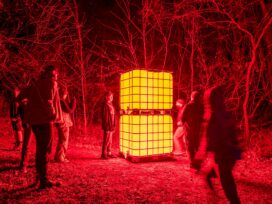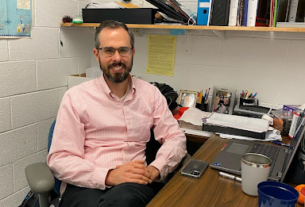Get prepared for your medical degree with NAS 2
NAS 2 (Foundations of Life Sciences) is one of the many science classes taught at PVCC. It has been around for at least a decade, “It was designed to prepare students more appropriately and specifically for anatomy and physiology 1 and 2, and for the nursing program, radiology and other health,” said Elsa Spencer, assistant professor of biology and nutrition at PVCC. Spencer has been teaching NAS 2 for five years. She says that NAS 2 can be a substitute for Biology 106, and either course can be taken as a prerequisite for Anatomy and Physiology.
Allied health students will often opt to take NAS 2 as their prerequisite, as opposed to BIO 106. The reason for this is that while classes such as BIO 101 or 106 offer a more comprehensive view of biology, they spend a large portion of the semester learning about plants, which is not needed for anatomy and physiology.
The NAS 2 curriculum doesn’t go over plants at all; instead, the course focuses on how the human body functions on every level. Starting from the atomic level and working up all the way to organ systems, this course builds on itself and provides a clear and retainable knowledge base about the human body and its many systems.
NAS 2 is also often used as a refresher course. The NAS 2 syllabus says, “NAS 2 presents elementary biological and chemical principles for allied health students whose high school preparation is inadequate in the biological science.” While this course is often used by allied health students, even non-allied health students can benefit. Many general studies students will take this course as a refresher if they have been out of school for a while or feel as though their high-school education has not prepared them for college-level science classes.
This course has a reasonable amount of homework but no labs. While this does mean that it is less of a time commitment, it also means that NAS 2 does not count as a science credit for graduation. Instead, NAS 2 is counted as a transfer elective. Even though this course does not count as a science credit, it can be helpful for those who need to brush up on their biology or chemistry before moving on to more advanced classes, or for allied health students who want a deeper dive into how the human body works.
There will be one online asynchronous course offered in the spring 2025 semester.







